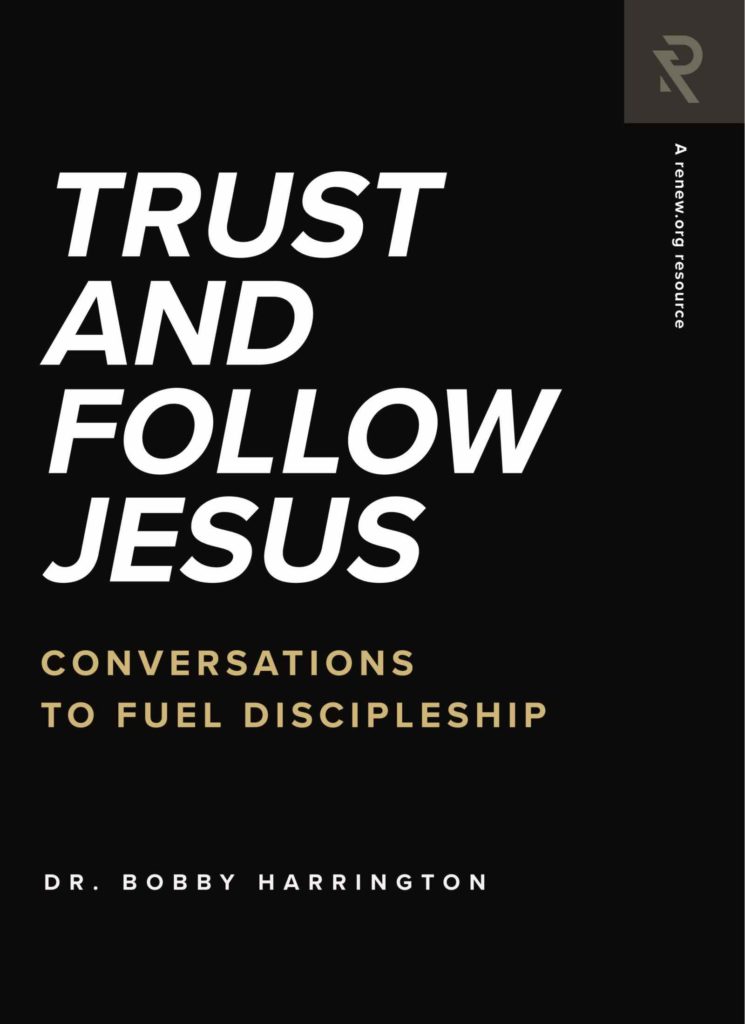
The Basis for Church Unity
In the New Testament, the favorite word used to describe the people of God is the word church. It is a translation of the Greek word ekklesia, which literally means “those called out.”
In biblical times, it was a favorite word used to describe a meeting or gathering of people, as “the called out people,” “the assembly,” or “the congregation.”[1] Applied to Christians, the term means “the gathering of Christians” or “those who are called out of the world to follow Jesus Christ.”
The term is never used in the Bible to refer to a building. What we would think of as church buildings did not even appear until hundreds of years after the Bible was written.
The word ekklesia was used in the Greek translation of the Old Testament to refer to Israel as the people of God. So the term nicely ties together the New Testament teaching that every person who is part of God’s promise to Abraham is included in “the church,” or “the people of God.”[2] In this sense, the New Testament church is a renewal and expansion movement among the people of Israel.[3]
The church was established just after Jesus Christ ascended to heaven in 29 or 30 CE (Acts 1:11) on a day known as the day of Pentecost, a Jewish celebration. This day witnessed for the first time the proclamation of salvation through the sacrificial death of Christ. The people who responded with faith in Christ, together with the apostles, formed the first New Testament church.
Affiliation in the church today is based upon the same response to God’s grace through faith as was practiced at that time.
Peter put it this way:
“Repent and be baptized, every one of you, in the name of Jesus Christ for the forgiveness of your sins. And you will receive the gift of the Holy Spirit. The promise is for you and your children and for all who are far off—for all whom the Lord our God will call.” With many other words he warned them; and he pleaded with them, “Save yourselves from this corrupt generation.” Those who accepted his message were baptized, and about three thousand were added to their number that day (Acts 2:38-41).
The church, as a “community consisted of those who, with the Apostles, had accepted the belief that Jesus was the Messiah, had been baptized and had received the forgiveness of sins and the gift of the Holy Ghost (Acts 2:37-41).”[4] In this way, the Bible shows that in both the first century (“you and your children”) and in this century (“all who are far off”), those who profess faith in Christ are added to the church.
People are added to the church by basic profession of faith in Christ, not by detailed knowledge or agreement with all facets of Christianity.
The apostle Paul summarizes the basis of unity in Ephesians 4:3-6:
“Make every effort to keep the unity of the Spirit through the bond of peace. There is one body and one Spirit—just as you were called to one hope when you were called—one Lord, one faith, one baptism; one God and Father of all, who is over all and through all and in all.”
This summary of the Christian faith is similar in tone and content to other summaries in the Bible (Hebrews 6:1-3; 1 Corinthians 15:1-8). These seven “ones” can be summarized in the following way:[5]
#1 – One Body
There is “one body” of God’s people both in history and throughout the world, sometimes called the “universal church.” There is no other way of being in God’s people, but in this “one body.”
#2 – One Spirit
This is the Holy Spirit of God, invisibly at work around us and that which identifies us as Christians.
#3 – One Hope
This is the confident expectation of eternal life with God after death through faith in Christ.
#4 – One Lord
Jesus Christ, God’s only Son died for our sins and is now reigning as our Lord and King.
#5 – One Faith
Faith in Jesus Christ (and his sacrifice) as one’s personal Savior and Lord brings a new relationship with God, the forgiveness of sins, and eternal life.
#6 – One Baptism
The means of conversion in the Bible was typically a simultaneous baptism in water and Spirit (the baptism in the Spirit is the essential element and normatively happened at the time of water baptism).[6]
#7 – One God
There is only one God, the Father of our Lord Jesus Christ.
These are the foundation of unity among Christians.
These are the things directly related to the gospel, those things which make us Christians and put us in the church. In this sense, true Christianity is both non-denominational (not restricted to any particular Christian denomination or group) and inter-denominational (embraced by people in all kinds of different denominations, Christian groups, and historical contexts).
[1] L. Coenen, “Church,” in The New International Theological Dictionary of the New Testament, ed. Colin Brown (Grand Rapids: Zondervan Publishing Company, 1975), 1: 291–307.
[2] See Stanley Grenz, Theology for The Community of God (Nashville: Broadman & Holman, 1994), 605.
[3] See Jacob Jervell, Luke and the People of God (Minneapolis: Augsburg Publishing House, 1972) and Hans K. LaRondelle, The Israel of God In Prophecy (Berrien Springs: Andrews University Press, 1983).
[4] R. H. Fuller, “Church,” A Theological Word Book of the Bible, ed. Alan Richardson (New York: MacMillan Publishing Co., Inc., 1950), 15.
[5] The following theological summary is developed along similar lines by Everett Ferguson. See “Theological Foundations of Unity,” Mission 6 (1972): 140-43. See also Klyne Snodgras Ephesians, The NIV Application Commentary (Grand Rapids: Zondervan Publishing House, 1996).
[6] See especially the footnotes in chapter 8, “Making the Commitment.” See also Klyne Snodgras, Ephesians, The NIV Application Commentary (Grand Rapids: Zondervan Publishing House, 1996) for the argument that baptism in this passage is exclusively Spirit baptism.








